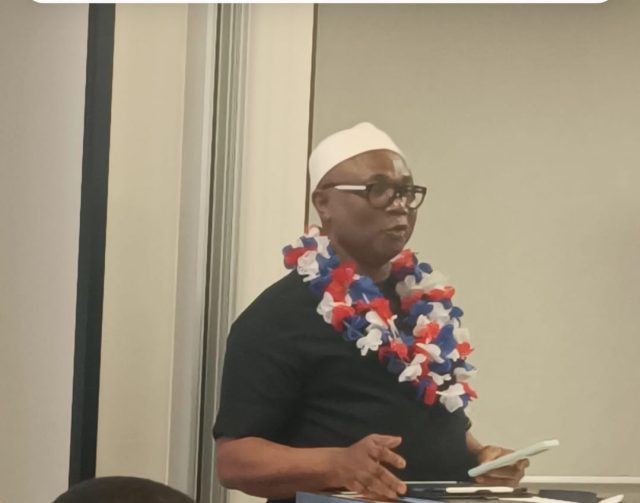Imo State governorship aspirant, Chief Charles Orie, has expressed his support for the Renewed Hope Ward Development Programme (RHWDP), an initiative launched by President Bola Tinubu to stimulate economic activity across Nigeria’s 8,809 political wards.
Speaking from Owerri, Orie stated that the programme represents a practical step toward reducing poverty in rural communities through targeted interventions in agriculture, education, and rural electrification. “This initiative will ensure that development reaches the grassroots, where it is needed most,” he said.
The RHWDP is structured to provide direct support to between 1,000 and 2,000 individuals per ward, to boost small-scale production and improve access to services. Chief Orie noted that this approach could generate tangible results if well-executed. “Empowering farmers and small businesses at the local level creates a pathway for more inclusive economic growth,” he added.
According to Orie, the programme’s design encourages states and local governments to take a more active role in development planning. He emphasised that aligning state-level initiatives with federal priorities would help ensure resources are not duplicated or misdirected.
In addition to economic considerations, Orie pointed to the importance of expanding school feeding programs under the RHWDP, describing them as critical for addressing both educational access and child nutrition. “We cannot tackle poverty without looking at its effect on children,” he said. “Feeding programmes have the dual benefit of keeping children in school and reducing the burden on struggling families.”
Orie also used the opportunity to highlight what he described as the need for measurable, data-driven outcomes. “Development efforts must be informed by reliable data and rooted in the realities of each ward,” he said.
Chief Orie, a former federal board chairman, has signalled his intention to seek the governorship of Imo State in 2027. He said his support for the RHWDP aligns with his broader vision for improving infrastructure, education, and agricultural productivity in the state.
“This programme should not be treated as a symbolic gesture. Its success depends on coordination, transparency, and local accountability,” he said.
The RHWDP, as announced by the federal government, will roll out in phases, with oversight expected from both the Office of the President and relevant ministries. Orie called for civil society and community leaders to engage with the programme to monitor its implementation.
The programme’s emphasis on grassroots engagement, according to Orie, could provide a framework for reversing long-standing patterns of rural neglect. “What we do at the ward level will determine the future stability of this country,” he said.







